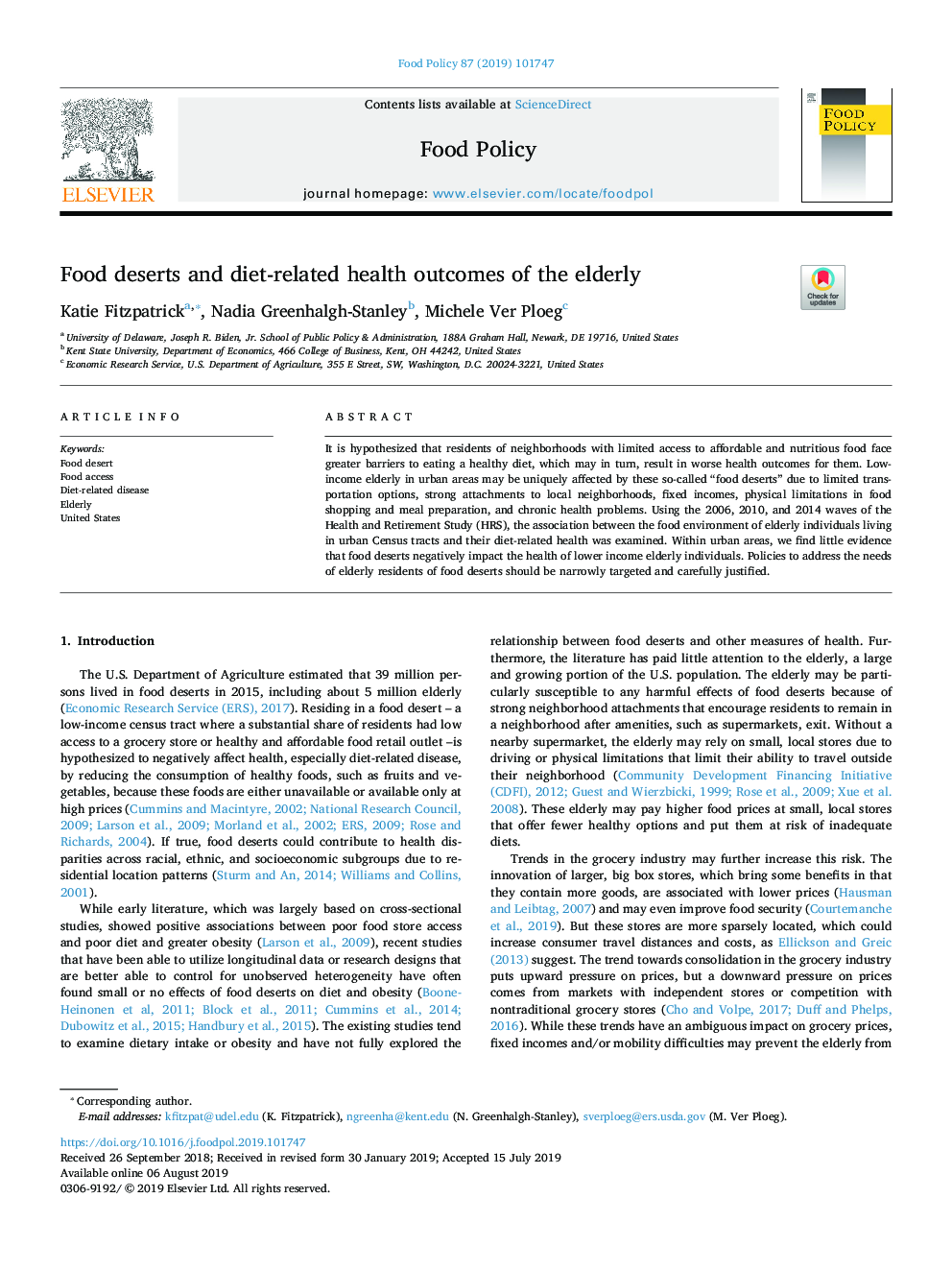| Article ID | Journal | Published Year | Pages | File Type |
|---|---|---|---|---|
| 13459990 | Food Policy | 2019 | 8 Pages |
Abstract
It is hypothesized that residents of neighborhoods with limited access to affordable and nutritious food face greater barriers to eating a healthy diet, which may in turn, result in worse health outcomes for them. Low-income elderly in urban areas may be uniquely affected by these so-called “food deserts” due to limited transportation options, strong attachments to local neighborhoods, fixed incomes, physical limitations in food shopping and meal preparation, and chronic health problems. Using the 2006, 2010, and 2014 waves of the Health and Retirement Study (HRS), the association between the food environment of elderly individuals living in urban Census tracts and their diet-related health was examined. Within urban areas, we find little evidence that food deserts negatively impact the health of lower income elderly individuals. Policies to address the needs of elderly residents of food deserts should be narrowly targeted and carefully justified.
Related Topics
Life Sciences
Agricultural and Biological Sciences
Food Science
Authors
Katie Fitzpatrick, Nadia Greenhalgh-Stanley, Michele Ver Ploeg,
